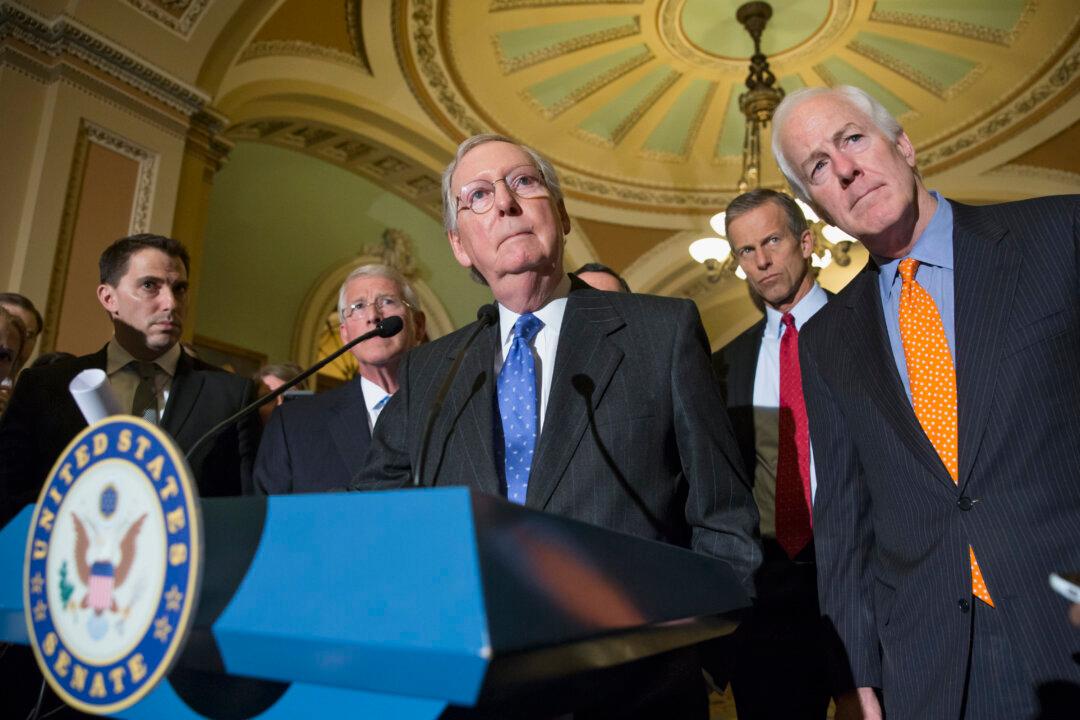WASHINGTON—Democratic foes gloat that Senate Majority Leader Mitch McConnell has guided his Republicans into a political dead end with his unbending edict that President Barack Obama’s successor will fill the Supreme Court vacancy and replace Justice Antonin Scalia.
The six-term Kentucky Republican has abysmal public approval ratings nationwide. Polling suggests independent voters side with Obama on the issue. Editorial boards insist the president should fill the vacancy now.
But McConnell, the architect and face of the GOP strategy to block Obama’s upcoming pick, appears entirely comfortable, even as he upends Senate precedent by denying even a hearing to a nominee.
And anybody who’s observed McConnell over the years knows he’s not changing his mind.
“My view, and I can now confidently say the view shared by virtually everybody in my conference, is that the nomination should be made by the president the people elect in the election that’s under way right now,” McConnell told reporters after emerging from a closed-door meeting with GOP senators this week.
That Republicans would stymie any pick by Obama should be no surprise. If Scalia is replaced by a liberal or moderate Obama nominee, the balance of the court would change, with potentially enormous consequences for issues like abortion, union rights, immigration and congressional redistricting this year alone.
If there’s a political cost, and that’s a big “if,” it’s one that has to be paid.





